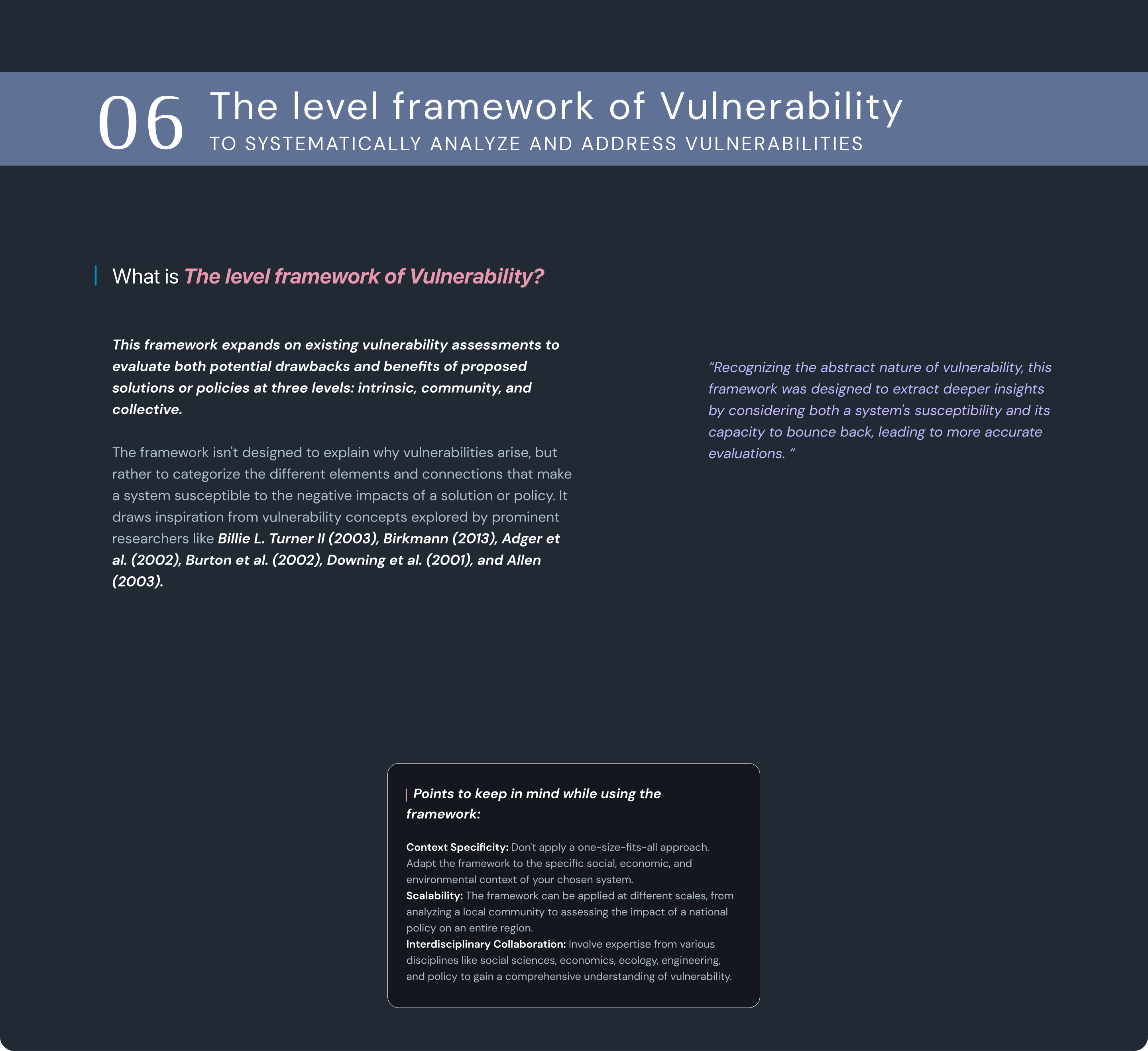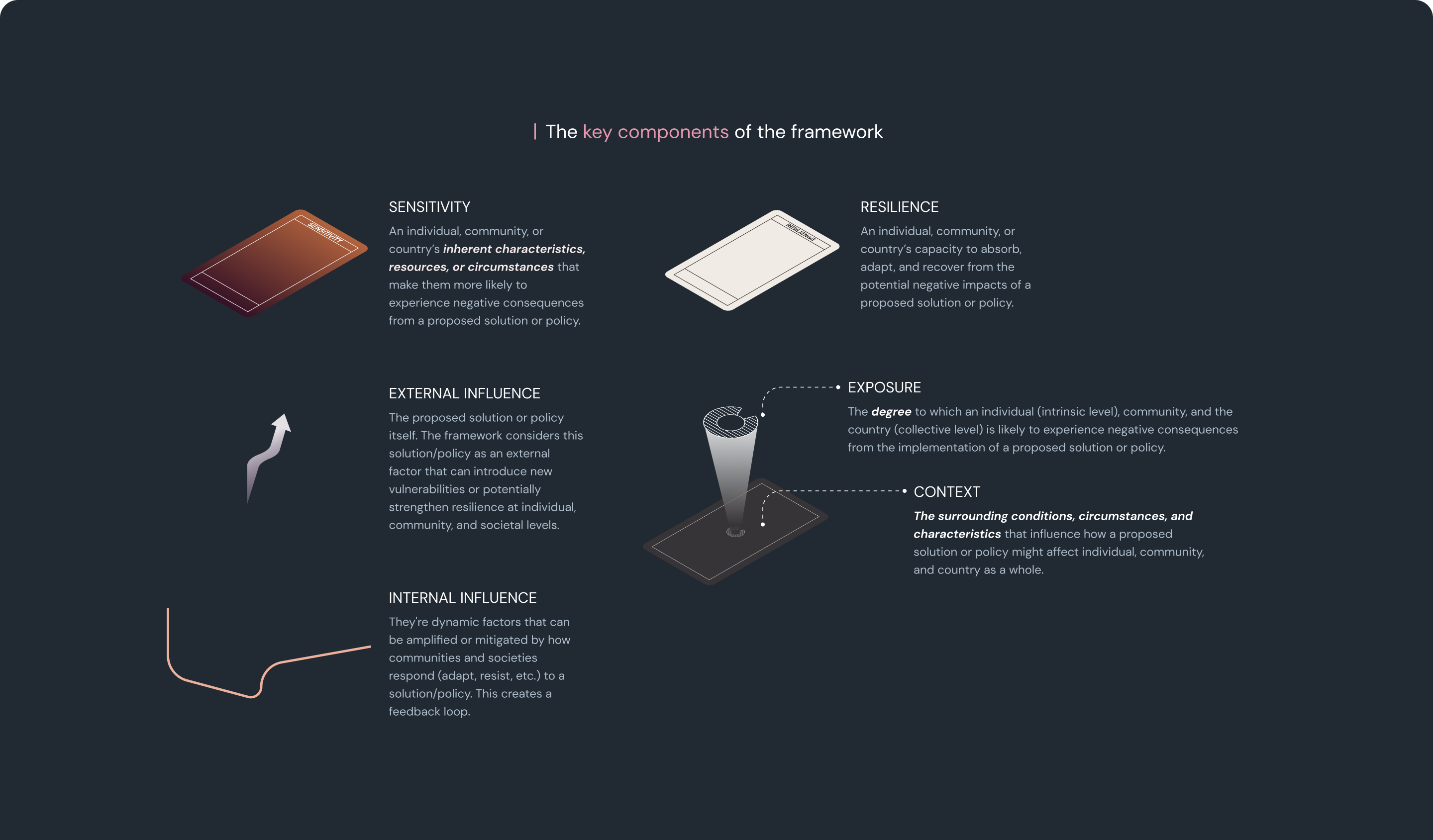




















Please click on buttons to see the steps.
Identify the specific social-economical system you're analyzing.
This
could be a local community, an agricultural region affected by a new
irrigation policy, or even a national population facing a healthcare
reform.
Consider the boundaries: Define the geographical area and the types
of
individuals or groups included in your system.
Focus on the seven key components:
Socio-cultural: Collect data on demographics,
income
levels, education,
social safety nets, and cultural norms.
Economic: Analyse economic structure, employment
opportunities, access
to resources, and dependence on specific sectors.
Political: Investigate governance, policy
frameworks,
and the capacity
of institutions to manage change.
Assess existing infrastructure, access to technology, and
communication networks.
Environmental Analyse the natural resources,
biodiversity, and
environmental risks within the system.
Physical: Identify potential threats like natural disasters,
pollution,
or economic shocks.
Economical Identifying factors affecting learning
outcomes, limiting
their educational opportunities, or preventing them from achieving
their
full potential.
Utilise various methods: Use surveys, interviews, government data,
scientific reports, and existing vulnerability assessments.
Identify how the components influence each other: Look for
connections
between factors. For example, high poverty (social factor) might
increase sensitivity to discrimination, physical and environmental
vulnerabilities.
Analyse potential feedback loops: Consider how the implemented
solution/policy might interact with existing vulnerabilities,
potentially leading to cascading effects.
Involve stakeholders throughout the process: This could include
community leaders, policymakers, experts, and potentially
individuals
directly affected by the proposed solution/policy.
Use the framework's insights to develop strategies for reducing
vulnerability to increase resilience and transformation by enhancing
adaptive capacity. This could involve skills training, livelihood
diversification programs, or fostering innovation.


